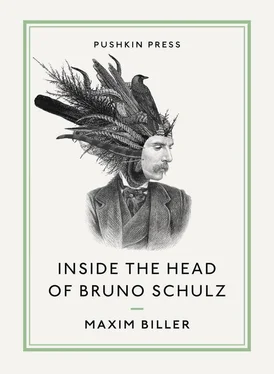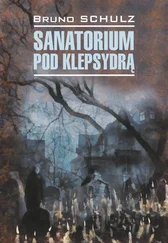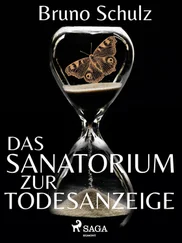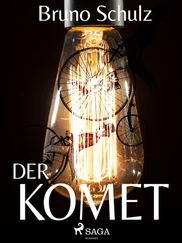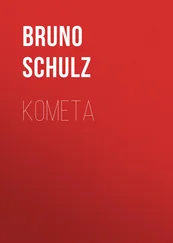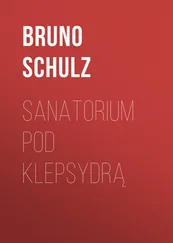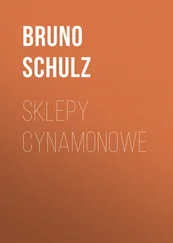So what? She shouldn’t have asked him to let her see at least a few pages of his novel, and he had been cold as well, in spite of the summery days that came like a gift in mid-November, and in spite of the fact that he was wearing his heavy jacket. When she finally let him out he was feeling very much better, or so he told her at least, for fear of making her even angrier, and she promised to shut him up again sometime soon. Maybe, she added, she’d come into the little room with him herself for a while if he liked. She could go to one of the chaotic shops beyond the market place that opened only late in the evening for a few hours, sometimes not even that, and buy some things that she’d been wanting to try out with him for a long time. He could guess what she meant! No, he had replied, he’d rather she didn’t, although he immediately felt very safe and well at the thought of those things — black leather Venetian Columbine masks stuffed with sawdust; penis-sized Pierrots made of willow rods, and Easter whips interwoven with thin steel chains; silver nipple clamps, and Japanese shunga candles (their dripping wax left no blisters behind on the skin). He wondered, even as he hurried up to the second floor and his class of shouting boys in the art room, whether to say he was sick next day. Then, when he was on his way home, it occurred to him that he had been meaning for a long time to write to Thomas Mann in Zürich, and that decided the matter: he would be off school sick tomorrow!
“The way the alleged Thomas Mann eats and speaks is also suspicious,” Bruno wrote in his notebook now, still sitting on the floor, while the tapping on the window pane died down. “It is true that he cuts up the meat and potatoes on his plate in a bored manner, just like a surgeon studying his patient’s tissue, first spreading the napkin on his lap even more lovingly than stern Adele used to place freshly shaken-out quilts and pillows on our beds. But then the stranger will suddenly fling his knife and fork wildly across the restaurant in the Swaying Pyramid Hotel, where he has occupied the manager Hasenmass’s bathroom for weeks, he seizes the food on his plate with his hands, stuffs it into his mouth, and blood spurts all over his shirt and into his eyes. Fortunately, he has not yet hit anyone with the flying cutlery! All the important people in our town, who have been hovering around him since his arrival like a colony of bees around their queen, duck for a moment and then come up again — the corners of their mouths stretched in a subservient smile, their eyes glazed and reddened with alarm — and ask him please to go on telling them his exciting stories.”
Bruno paused for a moment. The unpleasant tapping and scraping of the birds’ beaks had stopped, but now evening, almost night had fallen, as abruptly and menacingly as it did every day of his life. In the basement, however, stale twilight still reigned, with the remnants of many terrible and futile hours of work, and that immediately reminded him yet again of the fact that, so far, only the title existed of the great book that he had been promising his friends, his colleagues, and the women he knew in Lemberg, Warsaw and here at home for years — not a page, not a drawing. He didn’t even know what the book was going to be about. At least he had finally written his first story in German, and if, with the aid of Thomas Mann, it were to appear in the Neuer Rundschau or in the Sammlung , not even his fear could keep him from leaving Drohobycz and Poland for ever. A friendly letter from the famous writer in reply to his, a recommendation from him to the publishing houses of Querido in Amsterdam or Bermann Fischer in Stockholm, and he would throw a couple of manuscripts, his drawing pads, some underwear and his shaving things into Papa’s old leather suitcase and set off for freedom.
“The longer the stranger stays here,” Bruno continued his letter, while a high-spirited smile brightened his stern, almost sad face, “the more often he is asked what has brought him, the famous winner of the Nobel Prize, to a little backwater like Drohobycz. Have his works not been translated into thirty-seven languages? Doesn’t he count Albert Einstein, Arthur Rubinstein and Franklin D. Roosevelt among his friends? Isn’t he more prosperous than all the Polish and Yiddish writers of West Galicia put together, and couldn’t he therefore, if he were coming to our part of the world, afford to stay in a suite at the Russischer Hof hotel? He always gives a different answer — either with exaggerated friendliness, or angrily stamping his muddy walking shoes, which are full of holes. Sometimes he says that he is no longer safe in Zürich, because the Germans have begun throwing their enemies out of the windows of houses in secret, but they would certainly never come to Poland. Sometimes he mentions a terribly deformed yet very sociable Lithuanian-American businessman who has lived in Drohobycz for years, and who could get him, his wife and his six children a visa to go to the States. I have never heard of this Mr Katanauskas before, and even the members of our friendly Thomas Mann Committee don’t know him, but of course they dare not question the master more closely.”
Bruno paused again, and not knowing how to go on he raised his eyes in the search for inspiration. In the twilight of the basement he did not recognize his own drawings, which covered all the walls and, because of the constant damp down there, were as wrinkled as old women’s skin. In the faint light of evening, the bodies and faces of the men, women, birds, horses and dogs that Bruno could never stop drawing looked even more distorted, translucent and vulnerable; they seemed to be simultaneously living and dead, and that gave him a new idea.
“One evening,” he went on, after skimming what he had already written and correcting two or three passages, “the alleged Thomas Mann also told us, in the bar of the Swaying Pyramid, that he wanted to collect material for his next novella here in the town of the Jagienka-Łomska pogrom. The novella, he said with an almost sadistic chuckle, would be about the abduction and murder of a little Christian girl, just as it was in the real pogrom. Suspicion — and he couldn’t stop laughing, dear Dr Mann, while striking the manager Hasenmass several times on his bald patch — suspicion would fall first on her own uncle, then on the Jews of the town, and because it soon became clear that the uncle was indeed the guilty party, the Christians were in such a rage that they killed the Jews and set fire to their houses. Then, when the fire spread to their own quarter of Drohobycz, they accused one another of destroying the town, fell upon each other and fought with knives and pitchforks, raped their best friends, both men and women, and their children and mothers. ‘Well, my friends,’ said the false stranger to us when he had finished, and was wiping tears of laughter from his eyes, ‘how do you like this story? How would you reply to the question of guilt that I am about to ask? I would say: if the Hebrews had never come to Drohobycz, that pointless and utterly destructive pogrom would never have taken place, would it?’ Then he beat a short but vigorous drum roll on the manager’s head with the palms of both his hands.”
There was another knock, this time at the closed basement door and much louder, but also more amiable than the idiotic, petty noise that his students had kicked up earlier with their beaks and claws. Bruno, crouching on the floor once again, this time on all fours, with his open notebook in front of him like a dog with its beloved bone, shook himself and tried to get a word out of his throat. But he could utter only a growl, for he was concentrating too hard, as he did whenever he was writing a story. “Brunio,” he heard his sister Hania calling from outside, “someone telephoned you. Are you in there? What’s that terrible noise?”
Читать дальше
